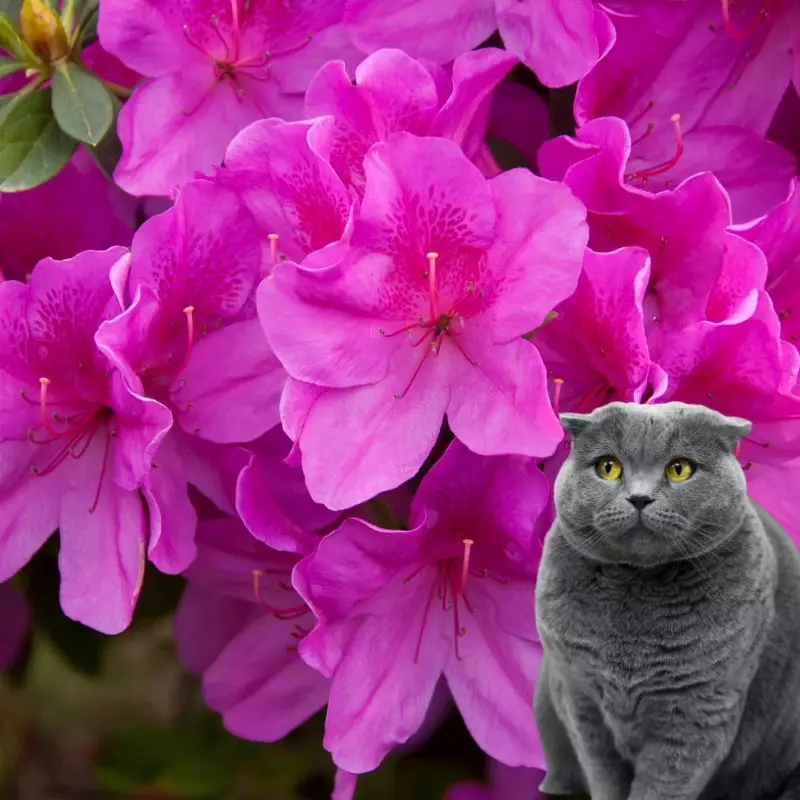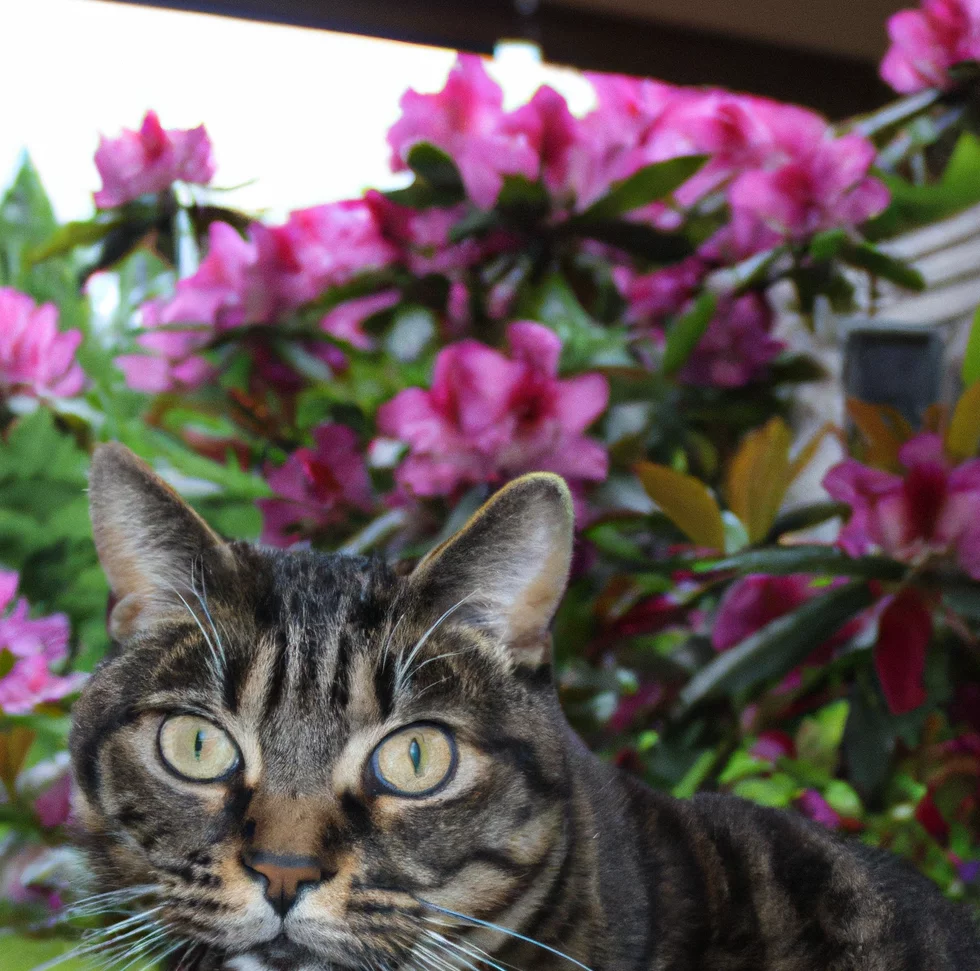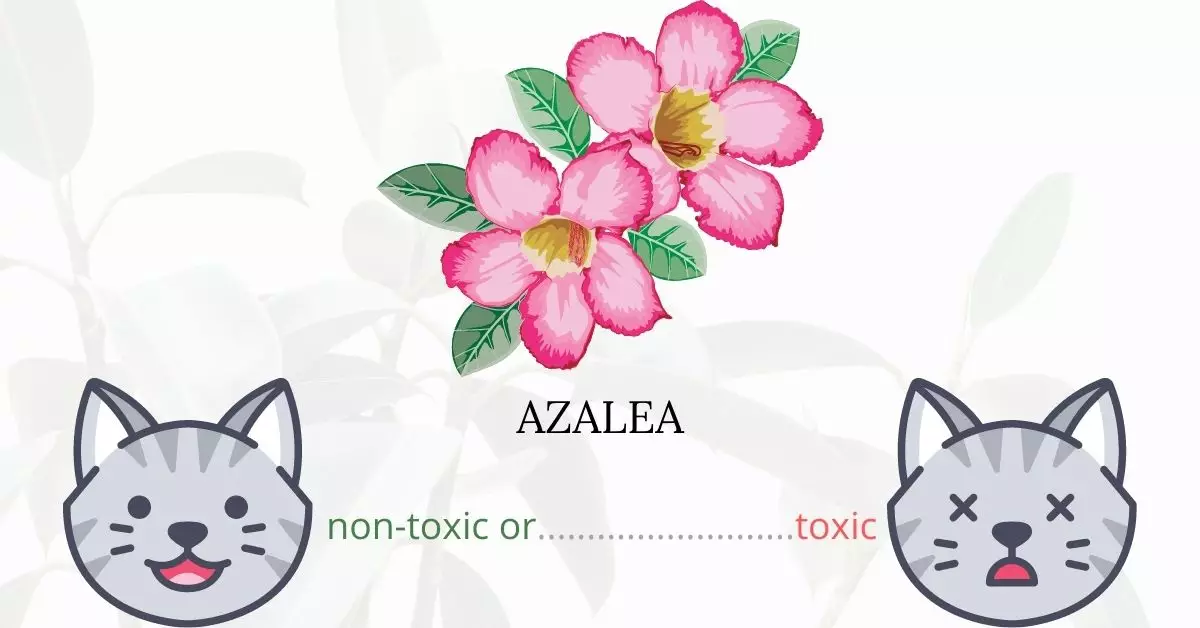Yes, Azaleas (commonly known as rosebay or rhododendron) are toxic to cats. These popular outdoor landscaping plants contain grayanotoxin, a substance that affects the sodium channels in the body. This, in turn, can impact the heart and skeletal muscle tissue. When ingested by cats and other small animals, symptoms may include vomiting, diarrhea, and weakness.
This article has been written in collaboration with a team of experienced DVMs (doctors of veterinary medicine). Their insights have been instrumental in ensuring that we provide accurate and up-to-date information on the potential risks associated with various plants, with a focus on Azaleas in this piece. Additionally, we have referenced high-authority websites such as the ASPCA and PetMD to ensure the utmost accuracy and reliability of the information presented.
Clinical Signs of Azalea or Rhododendron Poisoning in Cats

When a cat comes into contact with, smells, or consumes an Azalea plant, various adverse reactions may arise due to the grayanotoxin present in the plant. It’s imperative to take your cat to a veterinarian immediately if you suspect any exposure. Here’s an understanding of the clinical signs of azalea poisoning and the underlying reasons:
- Hypersalivation: The toxin can irritate the oral tissues, leading to excessive drooling.
- Vomiting & Diarrhea: The gastrointestinal system reacts to the ingested toxins, trying to expel them.
- Inappetence: Cats may avoid eating due to the gastrointestinal discomfort or the unpleasant taste of the toxin.
- Pain in the Abdomen: The ingested toxins can cause inflammation and discomfort in the stomach and intestines.
- Abnormal Heart Rate or Rhythm: Grayanotoxin affects the sodium channels, which can disrupt the normal rhythm and rate of the heart.
- Weakness & Lethargy: Due to the toxin’s effect on muscle tissue, cats may experience muscle fatigue and reduced energy.
- Depression: The cat’s overall demeanor may change as they feel unwell.
- Tremors in the Muscles: The toxins can interfere with muscle function, leading to involuntary muscle contractions.
- Temporary Blindness: In rare instances, the toxins may affect the cat’s vision.
- Seizures: Extreme cases can result in neural disturbances, leading to seizures.
- Coma & Collapse: High levels of exposure can lead to a depressed state of consciousness or even a collapse.
- Recumbency: A cat may lie down and be reluctant or unable to rise due to muscle and neurological effects.
- Ataxia or Staggering: The toxins may affect the cat’s coordination, causing them to move unsteadily.
- Respiratory Arrest: In severe cases, the toxin can affect the respiratory system, leading to breathing difficulties and, in rare instances, death.
Remember, immediate veterinary intervention can drastically reduce the severity of these symptoms and increase the chances of a full recovery.
First Aid and Treatment of Azalea or Rhododendron Poisoning in Cats

The veterinarian may use activated charcoal to bind any leftover poisons in circulation. If your pet has consumed a substantial amount of azaleas, your veterinarian may conduct a gastric lavage to clear the contents of his or her stomach. As needed, supportive care and symptomatic therapy will be administered, which may include hospitalization, intravenous fluids, and drugs such as pain relievers and gastro protectants. Atropine is considered a partial antagonist of grayanotoxins’ cardiac actions and can be used to treat bradycardia in animals, including cats.
Recovery from Azalea or Rhododendron Poisoning in Cats

Follow the veterinarian’s instructions and make sure to keep your cat comfortable as he or she recovers. Your cat will recuperate in a matter of days as long as he or she was given proper treatment.
Prevention of Azalea or Rhododendron Poisoning in Cats
It is not advisable to have azaleas at home if you are living with cats. Make sure to remove the azaleas in your house and yard to avoid another incident of azalea poisoning in your cat. If there are azaleas grown in your neighborhood, it is recommended to keep your cats indoors.
If you love plants but have cats at home, check out these lists:





